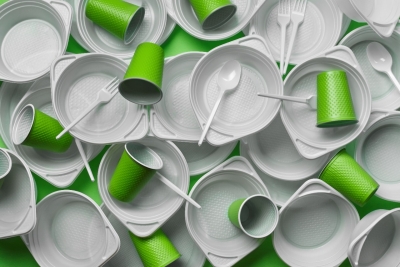
In August, India notified a ban on manufacture, import, stocking, distribution, sale, and use of certain single-use plastic items. Now, with the launch of its Plastic Pact, India has strengthened its fight against plastic pollution.
What’s the pact all about?
The Plastic Pact, the first of its kind in Asia and jointly developed by the World-Wide Fund for Nature-India (WWF India) and the Confederation of Indian Industry (CII), is a platform to promote a circular economy for plastic.
While linear economy businesses take a natural resource and turn it into a product which is ultimately destined to become waste, a circular economy employs reuse, sharing, repair, refurbishment, remanufacturing and recycling to create a closed-loop system, minimising the use of resources, and the creation of waste, pollution and carbon emissions.
It is a collaborative initiative that aims to bring together businesses, governments and NGOS to reduce, reuse, and recycle plastics in their value chain. During the launch, it was announced that 17 businesses including major FMCG brands, manufacturers, retailers and recyclers have committed to the pact as founding members, and nine have joined as supporting organisations.
The U.K.-based not-for-profit company Waste and Resources Action Programme (WRAP), along with UK Research & Innovation (UKRI), will offer operational and technical support to India. Plastic Pacts in Europe, the Americas, Australia, and Africa are also supported by WRAP.
What’s the target of the pact?
The Pact aims to define a list of unnecessary or problematic plastic packaging and items and take measures to address them through redesign and innovation. By 2030, 100% of the plastic packaging should be reusable or recyclable.
Why is this important?
Considerable amounts of plastic waste in India are not recycled because of lack of segregation and collection. Only 60% of plastic waste is collected and recycled in India, while the rest remains littered in the environment. The plastic recycling industry is vast and unorganised. Most of the plastic wastes are recycled into low quality materials, which again become single-use items. Environmentalists have been stressing the need for collaboration across the value chain from design and reuse to repair and recycling in order to develop impactful solutions. This Plastic Pact promises to be a step towards that.
Picture Credit : Google




